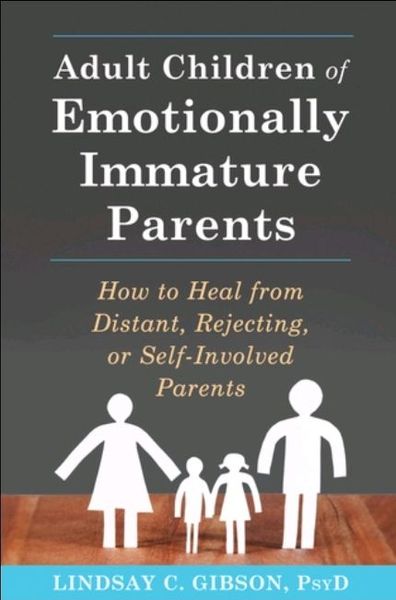
Adult Children of Emotionally Immature Parents How to Heal from Difficult, Rejecting, Or Self-involved Parents
What happens when children are more mature than their parents? Growing up with an emotionally unavailable, immature, or selfish parent is painful, but rarely discussed. In this breakthrough book, clinical psychologist Lindsay C. Gibson exposes an often overlooked, yet extremely common syndrome that shapes the lives of so many people. Gibson also provides powerful skills to help the adult children of self-centered parents gain the insight they need to move on from feelings of loneliness and abandonment, and find healthy ways to meet their own emotional needs.
Reviews
Jonnie@softmossdog
Bria@ladspter
Jennifer Biedebach@jennbied
Aamna@aamnakhan
Vicky (A City Girl's Thoughts)@acitygirlsthoughts
Julia@juliahansen
jaz ☁️@whatjazreads
Jacques Leslie@afairperuser
Sarah Pino@hoysarah
Omnya Ahmed@omnyaahmed
Stephanie @stephanie
Elli Izo@esnov
Shrouk Shafie@sunrise
Sage@tigerbalmreads
Elli Izo@esnov
Raag Sudha@raagrambles
Caroline Lewicki@clewicki20
Elli Izo@esnov
Jen Estrella@nightingale03
Heather M@meremoi
Erik Horton@erikhorton
Paul Prins@paulprins
Ier@irosqi
Bowie @unbowieable
Highlights
Lindy@lindy
Lindy@lindy
Lindy@lindy
Lindy@lindy
Lindy@lindy
Emma Hak-Kovacs@18emkova05
Emma Hak-Kovacs@18emkova05
Emma Hak-Kovacs@18emkova05
Laura Mei@thelibrariansnook
Page 11
Stephanie @stephanie
Page 188
Stephanie @stephanie
Page 167
Stephanie @stephanie
Page 151
Stephanie @stephanie
Page 149
Stephanie @stephanie
Page 145
Stephanie @stephanie
Page 111
Stephanie @stephanie
Page 105
Stephanie @stephanie
Page 7
Stephanie @stephanie
Page 34
Stephanie @stephanie
Page 14